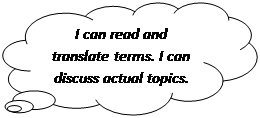Exercise 10: Answer the following questions:
1. What do you usually do when you fall ill?
2. What would you do if that happened in a foreign country?
3. What do you know about medical insurance in the country you live?
4. Does your country provide medical aid to foreign visitors?
5. What are the differences between health system in Britain and in this country?
6. What are the similarities between health system in Britain and in this country?
7. When you see a doctor what should you do?
8. Can you buy any medicine in the chemist shop?
Exercise 11: Make your own short report about medical care in Great Britain and in Russia.
Exercise 12: You know that many English words are polysemantic. Can you find equivalents to the following words:
| sweet heart | отважный человек, удалец |
| heart of oak | влюбляться (в кого-л.) |
| the heart of the matter | в унынии, в плохом состоянии |
| out of heart | суть дела |
| to lose one's heart to | милая, милый |
| VIP treatment | мастер по ремонту |
| witch doctor | бойкот |
| doctor | колдун, знахарь |
| treatment | торжественное обещание |
| silent treatment | переговоры |


Exercise 13: Listen to the tape
http://www.youtube.com/watch?v=EGuJIHRIt0&feature=related
1. Answer the following questions:
What happens with you:
- if you drink too much?
- if you have a high temperature?
- - if you eat some fruits?
- if you catch cold/
- if you cut yourself?
2. Make your own vocabulary on this topic.


 |

Exercise 14: Work with text according to the following algorithm:
1. Read the title of the text.
2. Look through the italicized words in the text and guess the main idea of the text.
3. What can you tell about the text according to the key-word?
4. Look through the text and formulate the main information.
5. Compose the plan of the text.
6. Ask your groupmates some questions.
7. Tell your opinion about the information. Inform the group about some extra facts – make examples of similar facts.
8. Think and tell everybody about the benefit of the information.
9. How do you understand the title of the text?
FIRST AID
When an accident happens the people present are much more likely to be people of the general public and not members of the medical profession.
First aid is terribly important and you can save lives if the right action is taken. Ninety per cent of first aid is common sense, and only ten per cent is specialist knowledge. If someone isn’t breathing, you must give them artificial respiration. Most people know how to do that. If the person is bleeding, the bleeding must be stopped. These things are obvious. Medical help must of course be sought and someone must decide whether the victim can be taken to hospital, or whether, given the nature of their particular accident, the victim should be left alone.
If a road accident happens there are two things associated with that. On the subject of burns, for example, some people put cream or grease or butter on, and this in fact makes the burn hotter. You need to decide first of all how bad it is. If it is a minor burn, the best thing to do is put the burnt area under the cold tap, or slowly pour on iced water. This should be done for about ten minutes, and it stops the heat from spreading. However, if it’s a bad burn, what we call a third-degree burn, don’t touch it, you really should get for this kind of burn expert help immediately. Cover the burn very lightly with something clean like a sheet or handkerchief and then go straight to a hospital.
The other thing people do is to give drinks, especially alcoholic drinks, which mean that if the patient needs an operation, he can’t be given an unaesthetic. So it’s better not to give any alcoholic drinks. If the patient complains of thirst, he should wash his mouth with water and not swallow.
That’s very useful. If you are at scene of a car accident there are three things you can do. First of all you should check that the victims are breathing. If they’re not, give artificial respiration. The most common injuries in car accidents in fact are fractures and bleeding, so the second thing to do is to stop the bleeding. Thirdly, you shouldn’t move the victim unless it’s absolutely necessary. If any bones are broken, the injury could be made much worse by moving victim. You should keep them warm, loosen any tight clothing, and try to reassure them. They’ll probably be suffering from shock, so just stay with them until expert help arrives.
It’s worth while for the general public to learn about basic first aid and find out how they can help.



Когда следует использовать электронную почту:
· Чтобы быстро и одновременно связаться со многими людьми;
· Чтобы отправить короткое личное сообщение, не требующее официальной "шапки" и подписи;
· Чтобы отправить сообщение, не требующее безопасности или конфиденциальности традиционной почты;
· Прямое электронное письмо – весьма эффективный способ сделать быстрый неофициальный запрос.
| From: C. Celderon Subject:Presentation Slides Not Delivered Roger, You were going to have the presentation slides for the Cortland project to me by yesterday. They have not arrived. Please get in touch with me. We’ll need those slides for tomorrow afternoon’s presentation. I left a voice mail with you this morning, too. Charlie | запрос дополнительная информация |
Все прочее...
Улыбки (smileys или emoticons) – это символы, формирующие схематическое изображение лица, выражающего эмоции. Хотя многим компьютерным специалистам они кажутся смешными дополнениями к электронным письмам, другие считают их неподходящими для делового письма. Ограничьтесь использованием таких лиц в переписке с людьми, которые – вы уверены – не будут возражать.
Использование акронимов и сетевых аббревиатур следует также ограничить перепиской со знакомыми адресатами. Не все знают, что "IOW" означает "in other words – другими словами", или что "IMHO" переводится как "in my humble opinion – по моему скромному мнению".
В электронных сообщениях не уместно писать текст ПОЛНОСТЬЮ ЗАГЛАВНЫМИ БУКВАМИ. Такие сообщения гораздо труднее читать; это говорит о вашем намерении кричать. Используйте этот прием для ВЫДЕЛЕНИЯ отдельных слов.
“Flaming” ("Ужасно") – сетевой термин, обозначающий чрезвычайно эмоциональные, оскорбительные или злые сообщения. Не забудьте проверить письмо на предмет эмоций.






